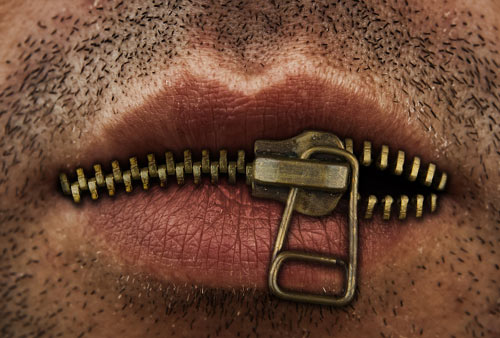
You'd think that a man who worked so closely with the most famous political prisoner in the world would be the last person to advocate criminal prosecution of his fellow Americans for their expression.
Yet that's essentially what Stengel advised in a Washington Post op-ed last week entitled "Why America needs a hate speech law." Stengel never adequately defines what constitutes "hate speech," because he can't. The concept is inherently subjective. What you determine to be hate speech another may consider a legitimate argument worthy of debate.
Investing government bureaucrats with the power to determine what constitutes legally proscribed "hate speech" presents many problems, foremost among them the lack of a neutral arbiter. Would Stengel entrust the current administration, led by a thin-skinned narcissist who calls critics "human scum" and inveighs against the "lying media," with enforcing his recommended "hate speech" law?
Stengel says he was persuaded to reconsider his lifelong support for the First Amendment when "the most sophisticated Arab diplomats" expressed bafflement to him at how the United States could allow people to burn the Koran. In other words, he concluded that the United States should prohibit blasphemy because flunkies for regimes that outlaw dissent told him so. Jamal Khashoggi, enemy of a regime boasting many "sophisticated Arab diplomats," was not available for comment.
Stengel offers post-World War II European hate speech laws as positive examples that the United States should emulate. Yet there is no evidence that speech regulations do anything to dampen political violence and extremism, maladies that contemporary Europe boasts in abundance. On the contrary, one could argue that, by rendering certain views and expressions criminally taboo, hate speech laws only encourage the very phenomena they are designed to combat.
It doesn't take long for readers to realize what Stengel's argument is truly about: relitigating the 2016 election. After describing the Kremlin-sponsored disinformation campaign against Hillary Clinton, Stengel declares that "the intellectual underpinning of the First Amendment was engineered for a simpler era. The amendment rests on the notion that the truth will win out in what Supreme Court Justice William O. Douglas called 'the marketplace of ideas.'"
Because that marketplace did not result in the American people choosing Stengel's preferred candidate, he proposes we scrap it altogether. Like many of his fellow former Obama administration officials who stubbornly refuse to acknowledge their own failures, Stengel asserts that Clinton lost because of Russian interference. Whether or not the assertion is true, it cannot possibly justify a radical rewriting of the U.S. Constitution.
Contra Stengel, we don't need to gut the First Amendment to combat disinformation. We need only make more and smarter use of it.
It is deceptive to write, as Stengel does, that because Russian government agents assuming fake identities to promulgate lies are "protected by the First Amendment" we therefore need to abandon it. First, Stengel conflates foreign, state-sponsored propaganda with speech by American citizens. Second, he neglects to mention that there are non-censorious ways of combating disinformation, such as the Trump Justice Department requiring Kremlin propaganda channel RT to register under the Foreign Agents Registration Act.
As this measure suggests, the best strategy to mitigate the corrosive effects of disinformation and hateful speech is with a better-educated citizenry. And that requires more speech, not less. Stengel laments studies indicating that middle and high school students cannot tell the difference between genuine news stories and sponsored content online. Yet surely the more effective way to reverse such a troubling societal deficiency is not by banning "fake news" (a hopeless task) but investing in media literacy and civics education.
Stengel asserts that "our First Amendment standard is an outlier," as if that were a bad thing. The only country to have been founded upon the idea of liberty, the United States is indeed an "outlier." It's what makes us exceptional. And central to that exceptionalism is freedom of speech.
While plenty of bigots exercise that freedom, so, too, have those at the forefront of every positive social change, from abolitionists to the suffragists to the leaders of movements for African American civil rights and gay equality. There is no way to secure the free speech rights of the latter without also guaranteeing those of the former.
"Let the debate begin," Stengel writes about his plan to ban the constitutionally protected expression he arbitrarily labels "hate speech." But we've already had this debate. It ended in 1789.
Sign up for the daily JWR update. It's free. Just click here.
Kirchick is a visiting fellow at the Brookings Institution and author of "The End of Europe: Dictators, Demagogues, and the Coming Dark Age."
Previously:
• 04/19/18: Moscow fostered a self-serving climate of appeasement. Western critics of intervention shouldn't mimic it
• 03/29/18: 'Collusion' narrative is doing the Russians' dirty work for them
• 11/14/18: How will Dems cope if Putin starts playing dirty tricks for Sanders (again)?


 Contact The Editor
Contact The Editor
 Articles By This Author
Articles By This Author